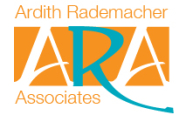There has been a lot of conversation about the best way to deliver feedback to employees in order to improve their performance and increase retention. It is generally understood that performance reviews should be provided regardless of whether you run a construction company or a banking company – but exactly how to approach this is still under debate.
A generation ago, it was standard that performance reviews be delivered formally, on an annual or semiannual basis. A manager would consult with and rate each employee on various aspects of their performance, then they would both sit down to review.
Many companies are now employing a more informal approach with regular developmental feedback throughout the year; Managers might sit down with their team members to touch base and deliver feedback on a monthly or even weekly basis. In fact, some organizations have gotten rid of the rating and ranking systems entirely. For most companies, however, a hybrid model where employees are rated on multiple metrics coupled with frequent feedback seems to work the best.
The merits of regular development feedback:
- Allows your team members to course correct along the way, and stay more in-line with frequently evolving company goals. This is particularly important in the construction industry where the stakes are so high; if someone is doing something wrong, they need feedback on improvement right away.
- Builds stronger relationships between managers and employees through regular communication. It also establishes an expectation of ongoing dialogue, which can help identify and troubleshoot issues early on.
- Establishes a strong sense of responsibility and commitment to the job and the team by letting employees know that they are being continually evaluated.
The merits of coupling regular feedback with multiple metrics:
- Protects the construction company should there be legal procedures taken for termination or job performance feedback. This documents the reason for dismissal and the steps taken to improve the situation first.
- Removes any subjectivity and misinterpretation regarding performance and areas of improvement, providing concrete and actionable areas to work on.
- Helps management (HR and supervisors) get a sense of an individual’s performance quickly.
Of course, what works best for your construction company may not work for others. Regardless of the metrics that you rate your employees on, having regular conversations can go a long way in terms of professional development and retention. While it is an extra effort, it will most certainly be worth it in the long run.
Photo by Christina @ wocintechchat.com on Unsplash









